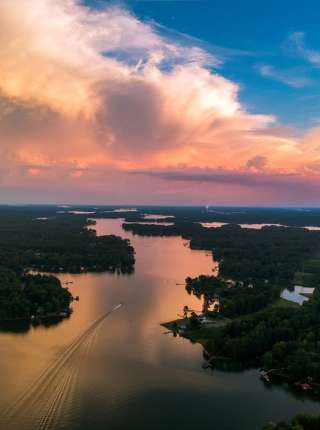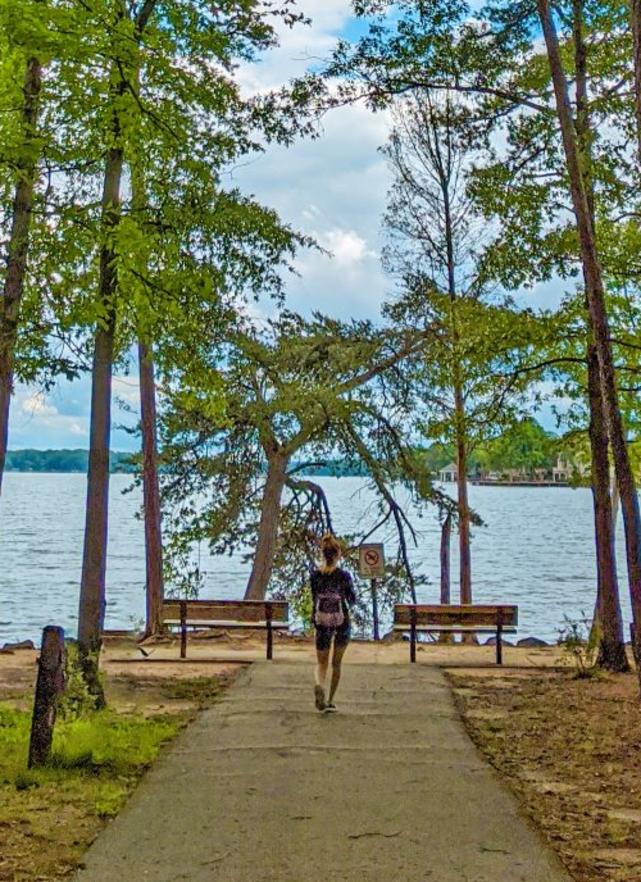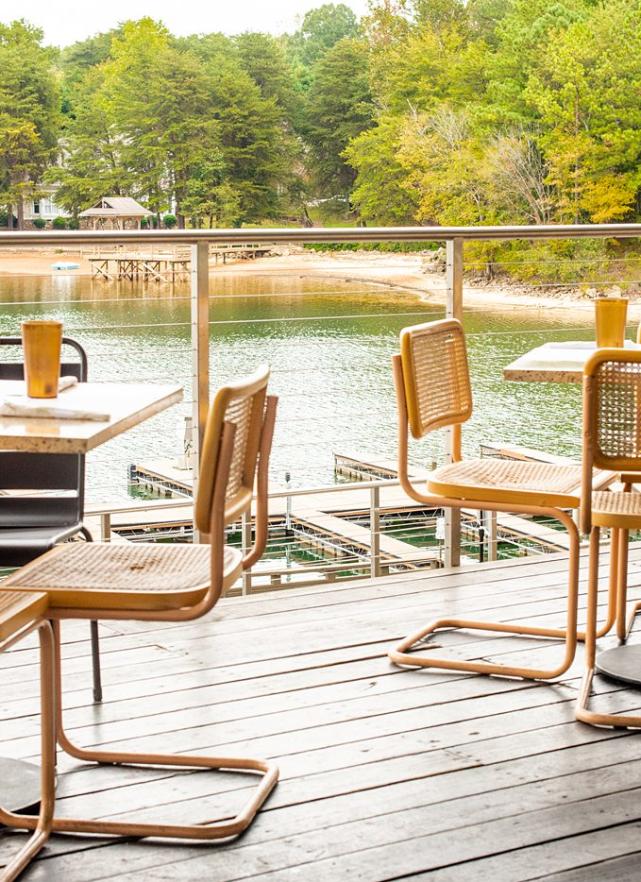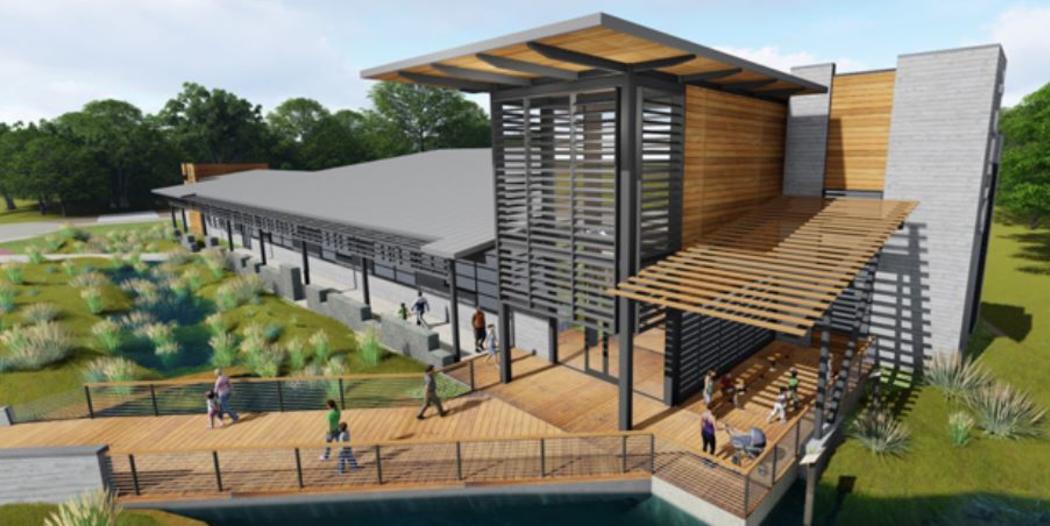Lake Norman across the state is known for its beauty. We are lucky to live here with such a stunning backyard, so we should preserve the beauty of this land and take good care of it. It is important that we keep it as great as we found it! Even if you’re visiting from out of town, we would love your help in keeping Lake Norman beautiful. Whether you’re out boating, fishing, hiking, or camping, together we can protect nature's space from impacts created by trash, overuse, or harming wildlife. Read on to see what's happening in Lake Norman and how you can help!
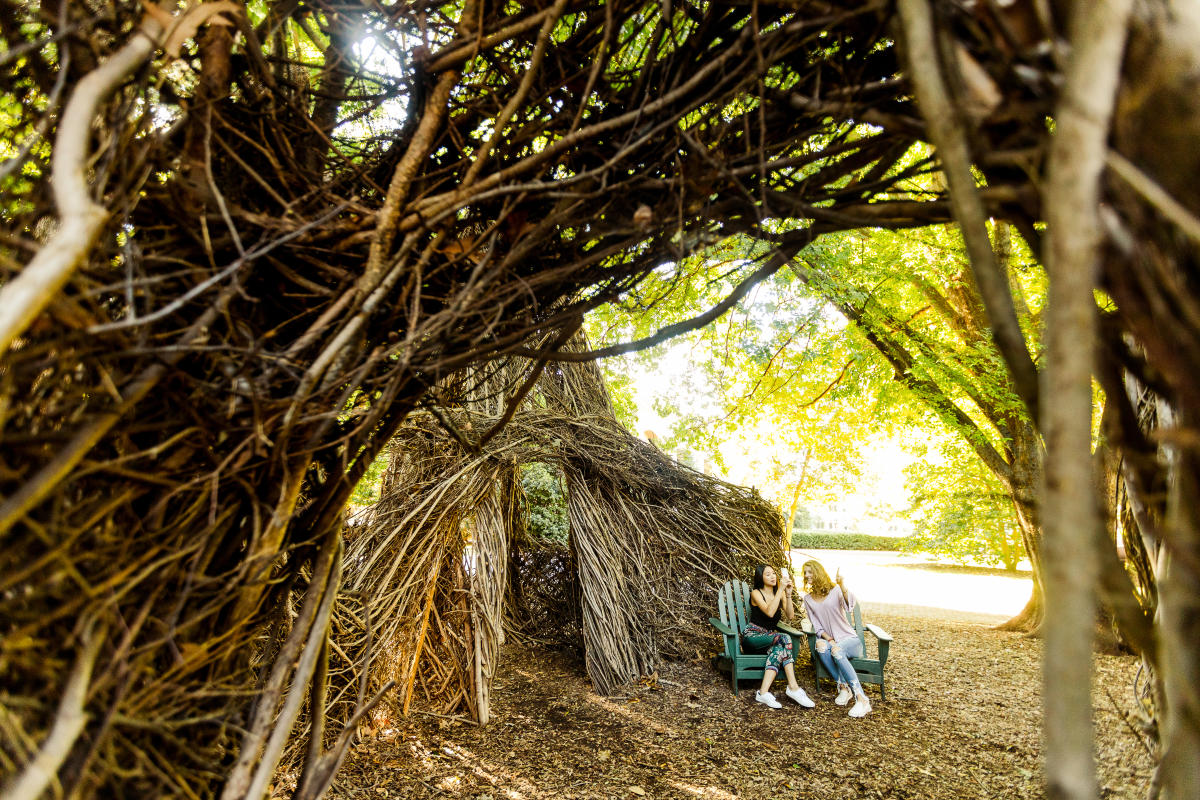
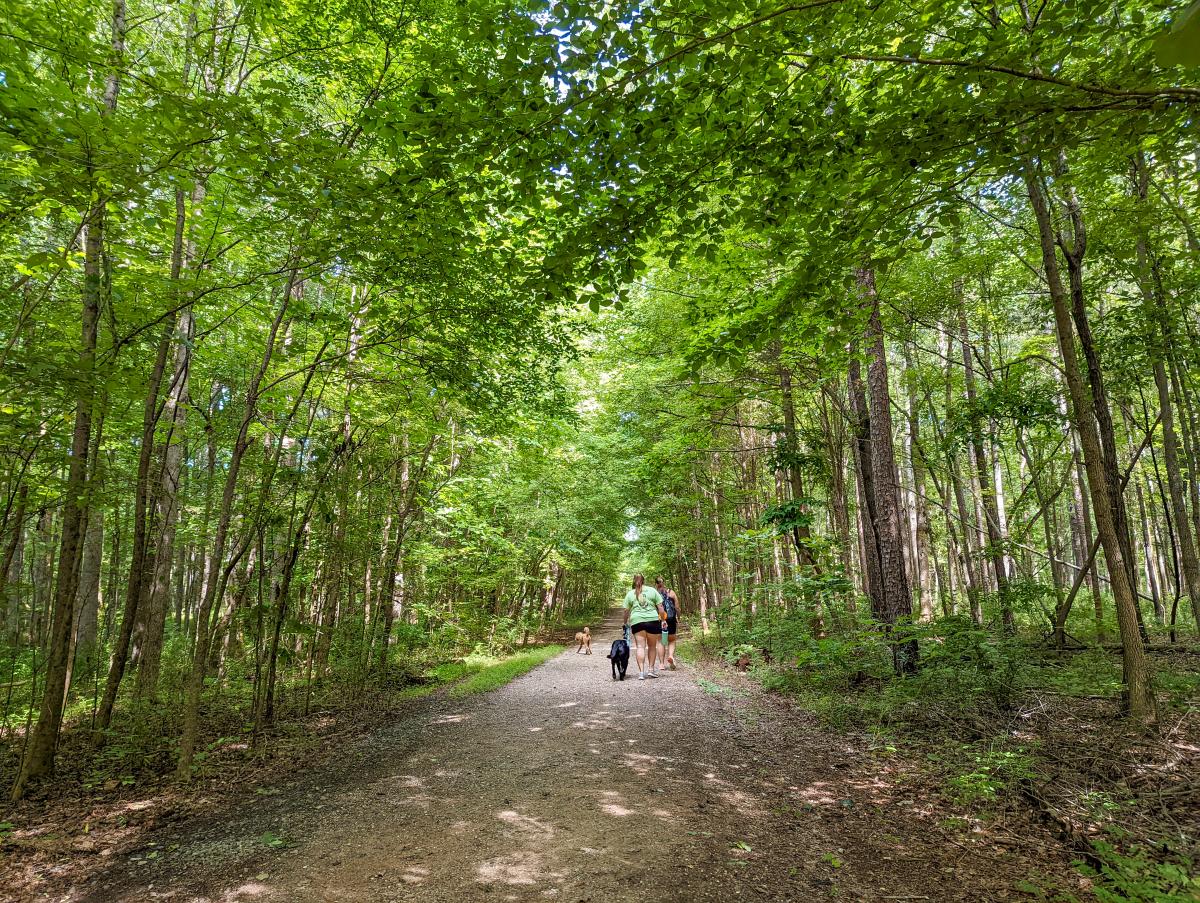
Davidson Land Conservancy
Davidson Land Conservancy (DLC) is a non-profit organization with the goal to conserve local lands and natural resources while connecting lives to nature and promoting conservation. The Four Pillars of Conservation focus on: Conserving Land, Preserving Trees, Trails & Greenways, and Wildlife & Habitats. DLC has conserved about 350 acres and they also partner with Mecklenburg County and the Town of Davidson to permanently conserve and steward Fisher Farm (200 acres).
We all have a choice to help protect the land that sustains and delights us...or just hope that someone else does. To get involved, you can: volunteer, donate, set up group/corporate outings, join in on the annual event 'Run for Green' or plant native trees and shrubs in your garden and remove invasive plants. DLC also hosts many in-person and virtual events designed for nature lovers of all kinds. These events include: participating in clean-ups, taking educational classes, and joining in on trail walks.
Catawba Riverkeeper Foundation
Catawba Riverkeeper has been serving our community since 1997 after it was founded by the Lakes Norman and Wylie Marine Commissions following a 1995 study on the Catawba River corridor. The Catawba Riverkeeper organization has a mission to preserve and sustain clean water in the Catawba-Wateree River Basin for future generations by preserving, protecting and restoring the community’s water quality.
In its mission to preserve the pure water of the river, the Catawba Riverkeeper puts a focus on diversity and inclusion to achieve its mission as they realize it will take all of us doing our part and putting in the work for our community and preserving our land and water for them to accomplish their mission.
There are several opportunities for you to help the Catawba Riverkeeper cleanup the river. You can help on the “Riversweep” taking place on October 5th, 2024 or you can do a individual cleanup on your own. Whenever you are walking or jogging, you can help do your part by picking up any type of litter you may see. Also, if you are interested in a group or corporate cleanup with your business, just contact them and they will provide supplies and any other type of help they can offer so your river cleanup can be successful.

Carolina Raptor Center
The Carolina Raptor Center is all about connecting humans to wildlife in a safe habitat. The three-quarter mile Raptor Trail and zoological facility permanently houses 30 birds of prey where guests can get some walking in while seeing some beautiful wildlife. The Carolina Raptor Center puts forward its mission to ignite imagination and inspire engagement in the natural world through the exploration and rehabilitation of birds of prey.
Carolina Raptor Center's medical facility treats 800-1000 raptors every year. For the ones that gain their health back, they are released back into their natural habitats for a second chance at life.
To help, CRC offers youth and adult volunteer programs or you can simply support them by making a donation. They also have internship positions open on their Rehabilitation and Resident Bird Care teams. To see these birds yourself and all the work the organization is doing, be sure to plan your trip to the Carolina Raptor Center today!
Leave No Trace
Leave No Trace is a statewide initiative to guide its residents to practice safety in the wildlife for themselves and their surroundings. This advocacy program with the slogan “leave no trace” is all about enjoying yourself but going in with a plan to practice safety and treating the area likes it's your home. After all, it is home to hundreds of species of flora and fauna. Leave No Trace has seven principles in place that are simple things we all can do to take care of our community.
- Plan Ahead and Prepare
- Travel & Camp on Durable Surfaces
- Dispose of Water Properly
- Leave What You Find
- Minimize Campfire Impacts
- Respect Wildlife
- Be Considerate of Others
These seven principles really pay dividends and have a massive effect on our community. All of these principles relay back to the underlying mission of Leave No Trace which is to minimize the impact we have on the land. To get involved, you can participate in their events, trainings & courses, and volunteer.
We encourage all of our visitors to do what they can in leaving no trace in our parks, water, and campsites. We can learn and implement a lot of what they teach and preach in our own community and keep Lake Norman safe, beautiful and better than we found it.
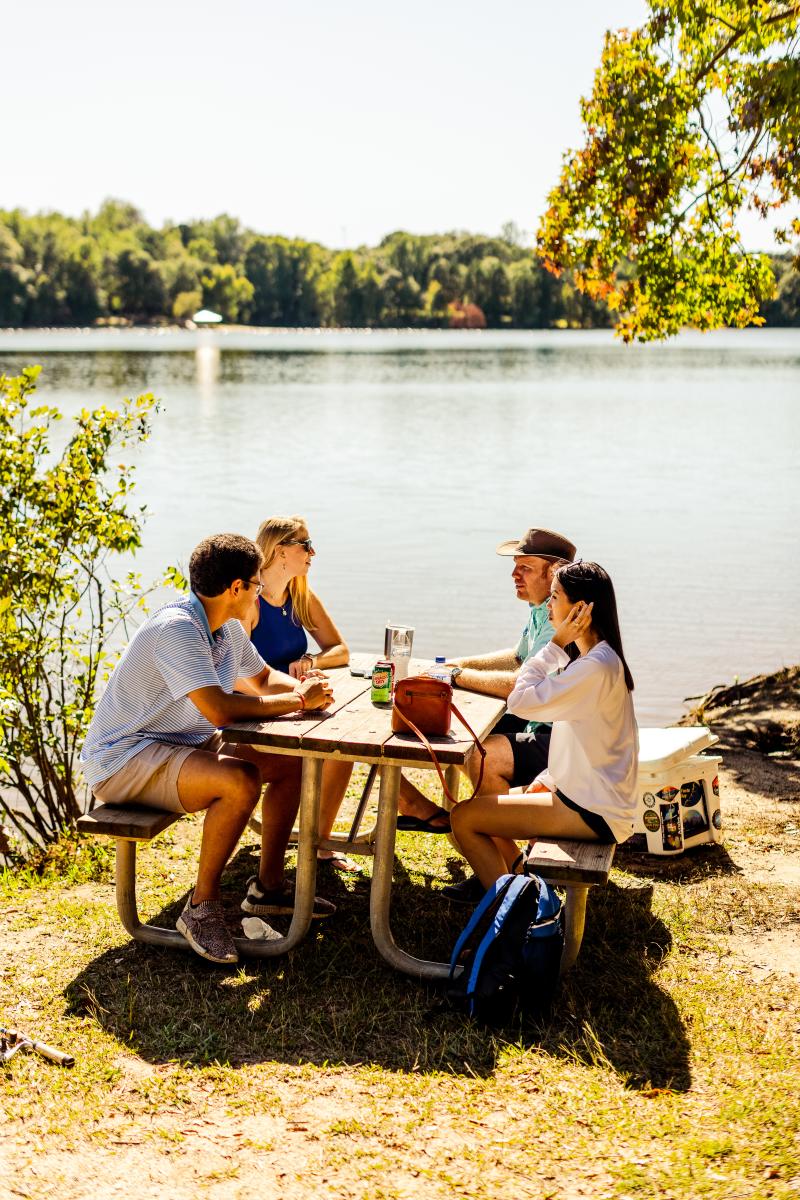
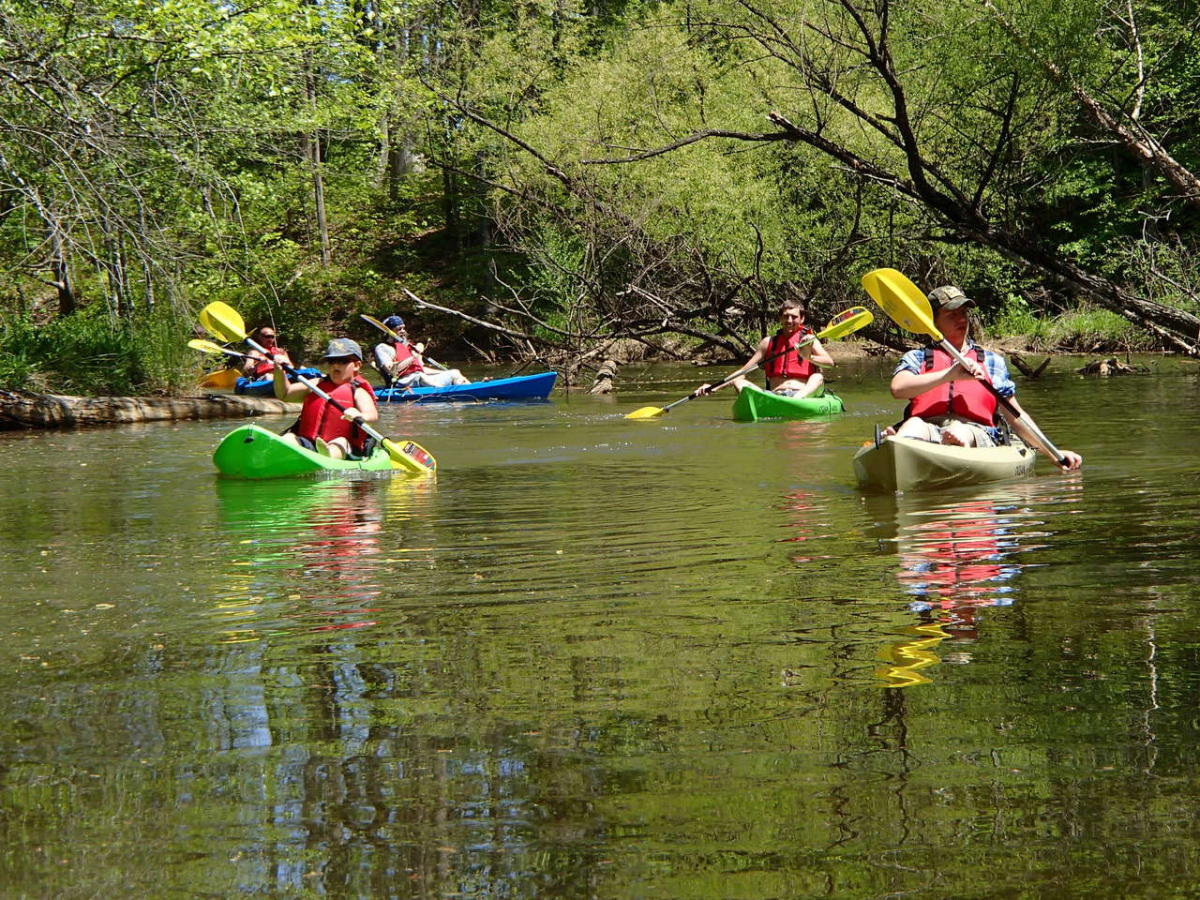
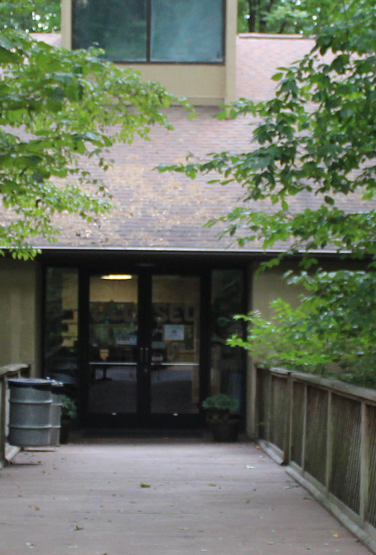
McDowell Nature Center and Preserve
McDowell Nature Center and Preserve, located in Mecklenburg County spans approximately 1,132 acres and boasts a diverse range of habitats including forests, fields, streams, and the scenic shoreline of Lake Wylie. Visitors can explore over seven miles of trails that meander through these varied ecosystems providing ample opportunities for hiking, birdwatching, and nature study. The Nature Center serves as the educational hub of the preserve featuring interactive exhibits, live animal displays, and programs designed to foster environmental awareness and stewardship. With its blend of recreational activities and educational resources, McDowell Nature Center and Preserve is a cherished destination for nature lovers and families dedicated to promoting the appreciation and conservation of the natural world.
Lake Norman Wildlife Conservationists
The Lake Norman Wildlife Conservationists are a chapter of the North Carolina Wildlife Federation, an organization that was established to educate communities on the environment, foster appreciation of wildlife, and encourage the conservation of wildlife habitat and natural resources. Lake Norman Wildlife Conservationists participate in a variety of different conservation initiatives such as the Island Habitat project. This program encourages fishing clubs, duck hunting groups, conservation groups, and other wildlife groups to adopt an island. Groups who participate agree to periodically clean up the litter from their island while providing data on wildlife species that inhabit their island and note positive and negative habitat characteristics and changes.
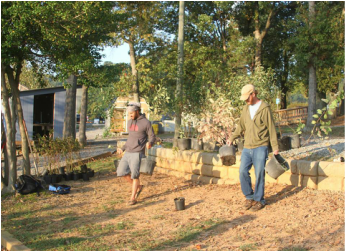
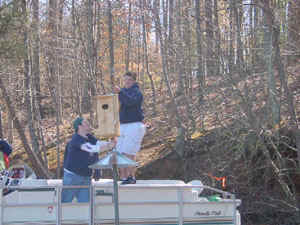
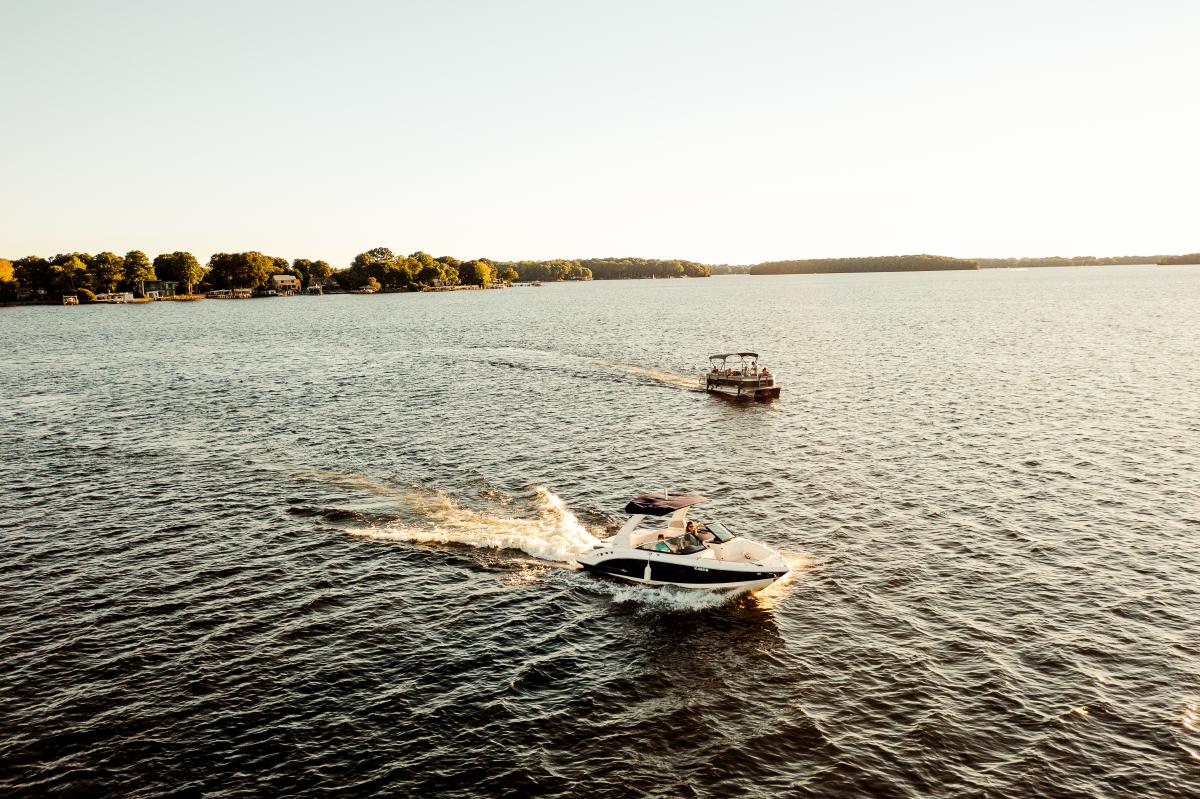
Lake Norman is filled with a community that wants to take care of the environment and create sustainability for ourselves, wildlife and future generations. Sometimes we need to get our hands dirty in order to do good and sustain our landscapes. Next time you see something as simple as a water bottle on the side of the lake, think of future generations. Not only humans, but also the wildlife that had ancestors that have walked these spaces long before civilization. So do your part to keep Lake Norman safe, clean, and beautiful.


